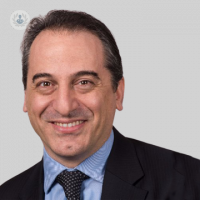Can metabolic surgery cure diabetes?
Autore:Diabetes is a long-term, or lifelong condition which affects the blood sugar level in your body and causes it to become higher than normal. It is divided into two main types: type 1 and type 2. In type 1 diabetes, the pancreas does not produce any insulin, which is the hormone responsible for controlling your blood sugar. In type 2 diabetes, the pancreas produces too little insulin, or cells in the body do not react to it. Type 1 diabetes is frequently diagnosed at a young age and it cannot be prevented, but it can also be diagnosed later in life.
Type 2 diabetes, on the other hand, can develop at any age, and affects the majority of those who have diabetes. It is far more common than type 1 diabetes, and is often associated with obesity, or being overweight. However, as we understand more about the condition, we are learning that there are solutions to type 2 diabetes, and even ways to cure it or keep it in remission. One such solution could be metabolic surgery, also known as bariatric surgery. Professor Francisco Rubino, a pioneer in the field of metabolic weight loss, with many years experience in Europe and the US, explains how bariatric surgery was developed and how it can help diabetic patients nowadays.

Bariatric surgery: the beginnings and development
Bariatric surgery was developed in the 1950s as a surgical approach to reduce the size of the stomach or to bypass a segment of intestine and in doing so, reducing the absorption of nutrients and causing weight loss. We now know that this mechanical idea behind bariatric surgery is actually wrong. In fact, when you change the anatomy of the gut or reduce the size of the stomach, you’re basically changing the physiology that regulates body weight - the metabolism is made more efficient by the changes in gastrointestinal physiology.
In 1999, I was a junior surgeon in training in New York. I knew a little bit about diabetes: enough to know that it is a disease that is not supposed to go away. I was surprised to see that patients who had bariatric surgery within days from the operation could see their diabetes symptoms completely resolved.
I wondered whether there was something that made surgery so effective, and if it could be because surgery changes the anatomy of the stomach and intestines. The gastrointestinal tract is incredibly important for glucose (blood sugar) regulation.
So we set up some experiments to investigate the hypothesis and found that in fact, when you change the anatomy of the intestines particularly the upper portion called duodenum but also the stomach and also other portions of the gastrointestinal tract immediately and powerfully changed the way blood sugar levels are regulated.
On the back of those findings, we became convinced that surgery could be used as a legitimate treatment for type 2 diabetes.
How can metabolic surgery help diabetic patients?
Due to changes in the gastrointestinal physiology, metabolic surgery is an excellent way to tackle obesity, or severe obesity. It is not mechanical as we first thought, but rather physiological. In many patients, if not most, surgery achieves adequate control of blood sugar levels and in many cases, even a complete disease remission.
Because of research and development we now better understand the proper indications for bariatric surgery and the best type of procedures in individual patients. There is not one procedure that fits all, and it is important to decide the choice of the surgical procedure based on individual patient’s needs.
What types of bariatric surgery are available?
There are a number of procedures that can be offered for the treatment of severe obesity or type 2 diabetes, including gastric bypass, sleeve gastrectomy, biliopancreatic diversion, gastric banding, and also novel procedures that can be performed endoscopically. All these operations can be offered by a minimally invasive approach, or laparoscopic approach, which reduces post-operative pain and allows an early recovery and return to daily activities. These procedures can now be performed with the same safety as common operations such as gallbladder surgery.
If you are considering metabolic surgery as a solution to type 2 diabetes, consult a specialist and decide on the best course of action, bearing in mind that each procedure must be tailored to the individual and their needs.


